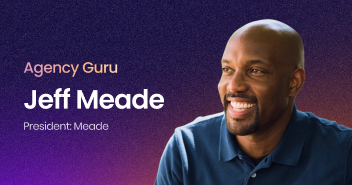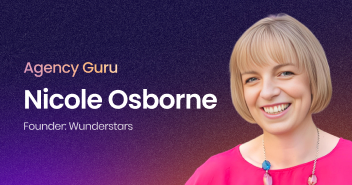Grant Fritchey is the Executive Vice President of SQL PASS. He is a Microsoft Data Platform MVP and has over 20 years of experience in development and database administration. He has written multiple books and articles on SQL Server and improving its performance. Outside work, he formerly taught at the New England Karate Academy where he attained the rank of sensei.

In his interview with Cloudways, Grant talks about how his career started, why he chose MSSQL over MySQL. He also talks about the comparison of SQL to NoSQL. Talks about distributed database design, data mining. In the last he gives a wonderful advice to students.
Cloudways: Grant, please tell our readers about how your career started, why you choose DBA as a career, and what was the reason behind it all and who motivated you?
Grant: I started in IT while I was working in the film industry. The IT work was just supplemental income. Eventually though, I was doing more & more until it became a full-time job in software development. While working at a startup, we had lost our DBA. It was creating lots of problems for us, so I went to the boss and started outlining the issues we were facing. He patiently wrote them on a white board and quietly asked which I was going to address first. Suddenly I was a DBA. The job came with a raise, so I kept it.
Cloudways: What are the key requirements according to you for creating a successful database design? What is the most typical database you have designed?
Grant: The most successful database designs have two general factors. First, they are structured properly. If it’s an OLTP style system, the database is normalized. If it’s a warehouse, there is a properly built star schema (or equivalent). Second, the design included choosing the proper clustered indexes for the tables. These two factors contribute the most to a successful database.
Cloudways: Grant, why did you choose MSSQL as your database provider instead of Oracle or MySQL? How are they different from each other?
Grant: I have worked with Oracle & Sybase professionally as well as with a number of other database management systems. I went with MSSQL just because I had been doing so much work, and getting paid for it, within the Microsoft stack. At the core, there aren’t really that many differences between the various relational DBMS choices. It’s about working with what you know, and working within the space that the market will pay you. I see lots of jobs for all the systems you mention. I just happen to prefer SQL Server. The one big differentiator for me though is the SQL Server community. PASS, user groups, #sqlhelp, and all the various forums and places where you can get active and friendly support. That ecosystem doesn’t exist with other products in the same way.
Cloudways: How would you compare SQL with NOSQL like Mongodb, Firebase, etc? Can it compete with SQL in terms of designing a database system or managing relational databases?
Grant: I don’t. They’re solving different problems. Let’s look at something like Hadoop. It’s a magnificent mechanism for almost infinitely scalable data collection. So if you’re working within some of the more modern technologies, say a car company, that’s collecting massive amounts of data in real time from thousands of sources, you need to collect data quickly. A relational system like SQL Server just doesn’t support that. However, reporting from Hadoop is extremely difficult and there’s no normalization enforcing business rules and data definitions, so the data can be, and in some cases likely is, extremely dirty. You then see people moving the Hadoop data into structured storage in order to make it easier to report on and to clean up the data. Enter SQL Server again. In short, each system serves a need. They’re not competing. They’re cooperating.
One other note on that, you’ll notice most of the NOSQL database have started to adopt all sorts of relational processes, foreign key enforcement, ACID transactions, etc… Why? Because they’re finding that, depending on the business and functional needs of the data collection, all that “old school” database management was there for a reason. I’ve also seen a lot of advocates for NOSQL change from “No SQL” to “Not Only SQL” in their advocacy because of all the stuff we’ve talked about here.
Cloudways: Large databases tend to become a resource hog on the servers. Do you have any suggestions for large websites and enterprise level products to improve the performance of the database?
Grant: Configure the servers correctly. Design the database correctly. You can’t just throw hardware at a badly designed system in order to get it to run better.
Cloudways: What are your thoughts on Data Mining? Which SQL provider would you recommend most for data mining?
Grant: I’m in love with all the new data science stuff coming out. I’m not smart enough to take advantage of all of it, however it’s extremely exciting. I recommend checking out the Azure Machine Learning tools. They’re going to get you into the full blown data science world the fastest with the least amount of pain.
Cloudways: Grant, you are the author of different books related to SQL. Which was your best selling book? Are you planning to write new books in the future?
Grant: The two books that I wrote on my own, SQL Server Query Performance Tuning and SQL Server Execution Plans are the best sellers. I am definitely writing more. A complete update of the SQL Server Execution Plans book is underway at the moment.
Cloudways: Have you ever created a Distributed Database Design? What are the difficulties that occur in making them and how can we resolve them easily?
Grant: Yes and no. Many years ago I created a database that maintained movie data in theaters. It had to do updates across all the theaters that were using it across the country. I didn’t however design the part of the system that moved the data around, so I’m not that familiar with that aspect of the system.
That said, I wouldn’t do it the same way any more. Now I would take advantage of something like Azure SQL Database which has the capability of being accessed in multiple locations all over the world. Centralizing to the internet makes a lot more sense in this connected world as opposed to having lots and lots of local databases.
Cloudways: You are one of the top contributors at Quora for database and SQL. How do you get time to answer user questions since you are a busy person? Why do you choose Quora over Stackoverflow?
Grant: I just swing by when I can. Some mornings instead of studying (I try to learn new stuff all the time), I will answer a few questions on Quora. I didn’t really choose Quora over SO. I’m on that too, just not as often. I do find that SO has so many more people answering questions, I frequently don’t even get the chance to help out there.
Cloudways: How do you spend your time when not working at all?
Grant: I love reading, usually science fiction, but frequently books on history, especially World War I. I do quite a lot of hiking. I exercise regularly at a crossfit box (being an older, overweight, computer nerd, I need the exercise). I also spend a lot of time splitting wood in order to heat the house in the winter.
Cloudways: Grant, What advice would you give to the students who are planning to start their career as Database Architecture?
Grant: That’s a tough question. I’ll try.
First, be flexible. Too often you see people get into a rut. They’ll spend about a year learning stuff, and then stop learning and just keep doing things the same way, all the time, forever. Instead, reassess what you’re doing and how you’re doing it regularly. Learn new things. Understand why you do what you do in order to be sure you’re doing the right stuff the right way and be ready and willing to change.
Next, work on your social skills. Technology is a team effort. We have to work together, so we might as well try to make it pleasant. Further, if you’re better at communication, you’re going to be more successful in your career, not only because you’re not making all your coworkers hate you, but because you’re going to be selling your ideas better to management and your peers, you’re going to be the one providing guidance and influence.
Finally, share. Create a blog, or YouTube account, or whatever the heck the cool kids are doing these days to publish information, and put your knowledge out there. Show what you’re learning. Show what you failed at. Show what you succeeded at. Share your knowledge with others. This will make you more successful because you will become the person that others reach out to.
Ahmed Khan
Ahmed was a PHP community expert at Cloudways - A Managed PHP Hosting Cloud Platform. He is a software engineer with extensive knowledge in PHP and SEO. He loves watching Game of Thrones is his free time. Follow Ahmed on Twitter to stay updated with his works.


